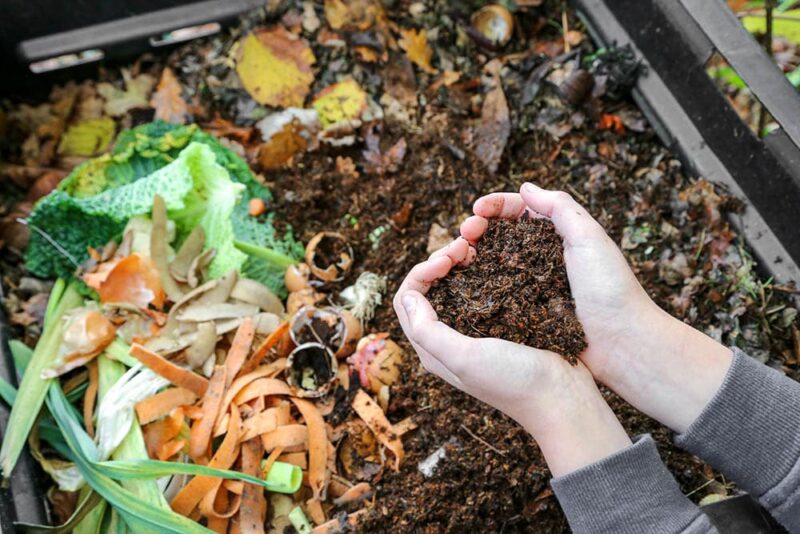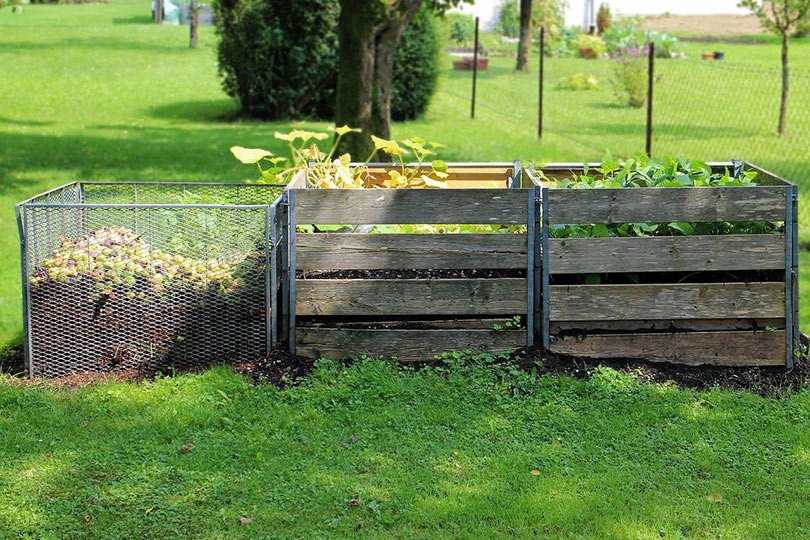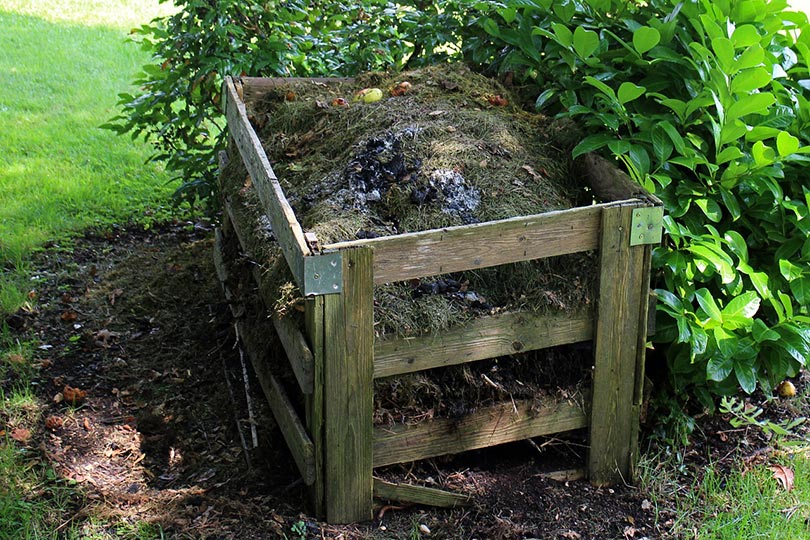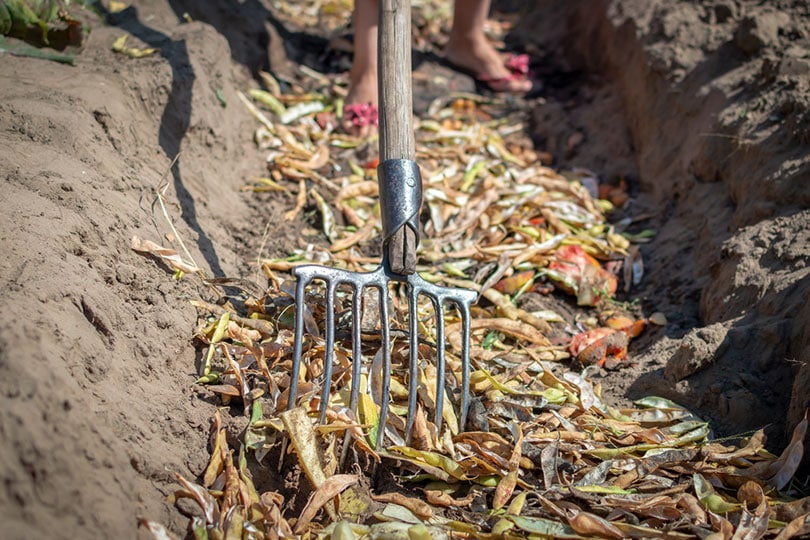When to Add Compost to a Garden? When’s the Best Time?
-
Shea Cummings
- Last updated:

Healthy soil is one of the most significant contributing factors to a healthy garden. A super-effective and easy way to increase soil quality is with compost. There are different opinions on how much and how often, but as a rule, 2–3 inches of compost added once a year is a good starting point.
Early fall is an ideal time to add the layer of compost because, by the time your springtime planting rolls around, the compost will be broken down and worked into the soil. In addition, when added in the fall, it can help reduce weed growth in the garden.
If you aren’t using homemade compost, adding the compost a few weeks before you plant in the spring is ideal. Bagged compost you buy from a supplier is already broken down, so it can be mixed into the soil right away.
Compost Throughout the Growing Season
Adding compost isn’t necessarily a one-and-done thing. There are several reasons to add compost throughout the year, albeit not in as thick of a layer as during the fall or spring. Two factors that affect when to add compost are weather and soil quality.

Weather
If you live in an area that gets a lot of rain regularly, it can often be good to add some compost after heavy rainfall to help restore washed-out soil. This helps keep the quality of your soil at a reasonable level.
Also, if your climate allows for a year-round growing season, you should be adding compost twice a year instead of just in the fall. Without a resting period between seasons, your plants will be draining the soil of its nutrients.
Soil Quality
Trees and vegetable plants need lots of nutrients to bloom and bear fruit well. So, adding some compost to boost the soil quality before they begin to flower will give them the extra juice they need to provide a good harvest.
As the planting cycle continues, soil begins to break down. If you find that the soil looks dense or full of clay, mixing in some compost will help bring it back to life.

Condition of Compost
The age of the compost is another contributing factor to when you put it in your garden. An old, well broken down bag or compost pile will be mostly broken down. So, it will not require much time to mix into your garden’s soil.
However, if it’s a relatively new pile, it will require more time to break down before its nutrients work into the soil. This is where adding it in the fall is ideal because it has a few months to break down and work into the soil before you’re ready for planting.
Compost Isn’t Just for the Garden
While the garden is the most common thing with which we associate adding compost, it’s not the only thing. Compost added to established grass is called a topdress. This can be done multiple times throughout the year.
Even if only done once or twice, it has proven to benefit grass. After aerating your lawn in the spring, mix in a thin layer of compost with a rake; then mix in some more in the fall.

 FAQ
FAQ
Should I put compost in potted plants?
Adding compost to potted plants is an excellent way of boosting the nutrients in their soil. Adding around one inch per year is a good rule of thumb. However, adjust this according to your plant’s particular needs and the starting soil quality.
Can I put compost on all plants?
All plants can reap benefits from compost. However, not all compost is suitable for all plants. The key is to know what your compost is made from so that you have an idea of its pH levels. For example, if you have more acidic compost, it will not benefit plants or vegetables that require alkaline soil. In fact, it can be pretty damaging.
Can compost replace soil?
Compost doesn’t replace the soil; it enhances it by adding nutrients and allowing it to breathe better. To thrive, your plants need their nutrients from the soil itself. Plus, compost lacks the density and structure to support a plant’s root system.
Does compost replace fertilizer?
It’s a common misconception that compost is fertilizer or a fertilizer replacement. But, that’s not entirely true. Compost enhances the soil, while fertilizer provides nutrients directly to the plants.
On one hand, yes, compost can replace fertilizer if it gives the soil enough nutrients to give to your plants. However, if your plants lack specific nutrients, you need fertilizer.
Conclusion
As you can see, there’s no hard and fast rule for how often you should be adding compost to the soil, but sticking to at least once a year is a good baseline. From there, you can adjust the timing as your garden’s needs change.
Composting as a gardener is a learning curve. Especially when you start to get into monitoring pH levels, for example. Taking your composting to the next level like this will be a process, but it will make for a wonderful garden.
- https://gardentabs.com/when-to-add-compost-to-garden/#:~:text=To%20maintain%20healthy%20soil%2C%20you,fall%20also%20helps%20reduce%20weeds.
- https://www.amy-pennington.com/blog/compost-101-add-compost-garden
- https://www.dummies.com/article/home-auto-hobbies/garden-green-living/sustainability/composting/when-to-add-compost-to-your-garden-beds-188776/
Featured Image Credit: Jerome.Romme, Shutterstock
Contents

 FAQ
FAQ